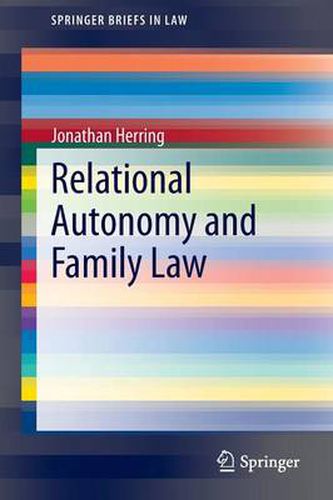Readings Newsletter
Become a Readings Member to make your shopping experience even easier.
Sign in or sign up for free!
You’re not far away from qualifying for FREE standard shipping within Australia
You’ve qualified for FREE standard shipping within Australia
The cart is loading…






This title is printed to order. This book may have been self-published. If so, we cannot guarantee the quality of the content. In the main most books will have gone through the editing process however some may not. We therefore suggest that you be aware of this before ordering this book. If in doubt check either the author or publisher’s details as we are unable to accept any returns unless they are faulty. Please contact us if you have any questions.
This book explores the importance of autonomy in family law. It argues that traditional understandings of autonomy are inappropriate in the family law context and instead recommends the use of relational autonomy. The book starts by explaining how autonomy has historically been understood, before exploring the problems with its use in family law. It then sets out the model of relational autonomy which, it will be argued, is more appropriate in this context. Finally, some examples of practical application are presented. The issues raised and theoretical discussion is relevant to any jurisdiction.
$9.00 standard shipping within Australia
FREE standard shipping within Australia for orders over $100.00
Express & International shipping calculated at checkout
This title is printed to order. This book may have been self-published. If so, we cannot guarantee the quality of the content. In the main most books will have gone through the editing process however some may not. We therefore suggest that you be aware of this before ordering this book. If in doubt check either the author or publisher’s details as we are unable to accept any returns unless they are faulty. Please contact us if you have any questions.
This book explores the importance of autonomy in family law. It argues that traditional understandings of autonomy are inappropriate in the family law context and instead recommends the use of relational autonomy. The book starts by explaining how autonomy has historically been understood, before exploring the problems with its use in family law. It then sets out the model of relational autonomy which, it will be argued, is more appropriate in this context. Finally, some examples of practical application are presented. The issues raised and theoretical discussion is relevant to any jurisdiction.